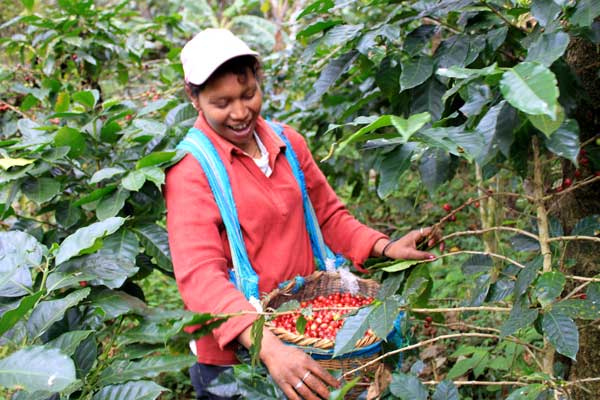The first episode of the #RealDeal series explored ways impact investors can speed due diligence and deliver added value to their entrepreneurs, multiply their impact — and perhaps have more success themselves. The show sparked a lively debate on LinkedIn about whether “Four-Hour Due Diligence” can join the Four-Hour Workweek or the Four-Hour Body as a best-selling idea (thoughts, @tferriss?).
- Watch the replay of the 30-minute show.
- Register here for “Buyer’s Remorse or Investor’s Delight,” Wednesday, June 10 at 9 PT/noon ET.
ImpactAlpha fellow Nikhil Gehani, filed this report on The Real Deal: Getting Impact Investments Done. Thanks, @NikhilGehani!
On Wednesday, ImpactAlpha and ADAP Capital hosted a free webinar called The Real Deal: Getting Impact Investments Done. The discussion, led by David Bank of Impact Alpha, was structured around ADAP’s investment into Vega Coffee, a social enterprise that is disrupting the coffee supply chain through a direct-to-consumer model.
Noushin Ketabi, co-founder of Vega Coffee, provided insight into the capital-raising stage of her business. Vega started by doing a series of product tests and deepening their relationship with farming communities in Nicaragua. Their initial fundraising started with a Kickstarter campaign where they raised $40,000, nearly twice their goal.
Vega was able to get a dealroom at SOCAP through Agora Partnerships. Investor interest in their company was high. One of the investors in the dealroom connected Vega with Andy Lower of ADAP. Before the conference concluded, Vega and ADAP were able to meet and agreed to continue the conversation.
Vega might not have known how important that first meeting was. Vega was pre-revenue and told Andy they would be ready for a Series A round in one to two years. However, Andy explained how important that first meeting was for ensuring that there was a good fit between investor and investee.
Andy broke his investment approach into a few key steps, which I’ve very briefly summarized here:
Initial Screen
This is the point where the investor can determine if a trusting relationship can be built. Is the entrepreneur personable? Do they have a solid vision? Is there good rapport between the investor and investee? Is there a viable business model? Big market opportunity?
Fortunately for Vega, Andy immediately felt a strong connection to the founders, the company, and the mission, which drove the conversation forward over the next eight weeks.
Seven S’s
The meat of the due diligence process is a data dump from the investee to the investor. It should require little of the entrepreneur’s time. ADAP tries to limit the entrepreneur’s time commitment to just four hours. From Vega’s viewpoint, that ADAP truly committed itself to becoming a partner, eschewing the existing investor-investee power dynamic for a more productive relationship.
You can learn more about the 7 S’s on ADAP’s website:
- Solution.
- Shift.
- Staff.
- Scalable.
- Sustainable.
- Strategy.
- Series A.
The questions Andy wants to answer at this stage include: Will the company be disruptive and cause a massive paradigm shift? Does it have the right staff, team, and connections? Will it create a large impact? Will it survive in the long-term? Do the numbers make sense? Is the leadership aware they will have to make huge pivots in the first year or two of operations, and are the capable? And, is this business going to be compelling for Series A investors?
Once ADAP has completed its due diligence summary, it forwards its assessment to the entrepreneur to determine whether it is a fair summary, create awareness around weaknesses, and take steps in addressing them. This part of the process is done in the spirit of transparency and trust.
Term Sheet and Getting the Deal Done
Once the due diligence process is completed, a term sheet is created. At this point, the deal structure usually doesn’t require much negotiation because both sides have already discussed what the company needs to move forward. If the foundation for a strong relationship is built, neither investor or investee will feel stressed or taken advantage of during the negotiations. It is, after all, intended to be a process that benefits the shared interest. In the case of Vega Coffee and ADAP Capital, the entire process from initial meeting to term sheet took around eight weeks.
As Andy put it, the key to getting impact investments done is having a respectful relationship with entrepreneurs, building trust, and having accountability. Noushin added that the entrepreneur should feel comfortable pushing the investor in certain situations, which was a testament to the partnership formed between the two organizations.
Getting an impact investment done should be a collaborative and transparent process. If you are a social enterprise courting an investor who seems to be dragging their feet through the due diligence process, you might want to reassess whether they are the right fit for your company.











